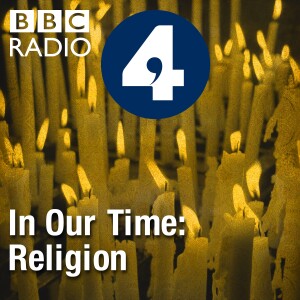
Melvyn Bragg and guests discuss the Oxford Movement in the Church of England in the 19th century. Cardinal John Henry Newman is perhaps the most significant Christian theologian of the nineteenth century. He began as an evangelical, becoming a High Anglican before converting to Roman Catholicism in 1845. His is the story of the diversity of Victorian religious life. But his path also marks the waning of the ideas of Protestant nationhood at the close of the eighteenth century and the reaffirmation of the Catholic tradition at the turn of the twentieth century. For over a decade, between 1833 and 1845, Newman and his fellow travellers, the Oxford Movement, argued that the Church of England was a holy Catholic and Apostolic Church. They sought to assert the Catholic nature of their Church just as secularism, liberalism, non-conformism, and even Roman Catholicism, seemed to threaten her. They published tracts, preached and brought their social mission to some of the poorest urban parishes. Why between 1833 and 1845 was the voice of reaction such a loud one? What was the Oxford Movement and what motivated them? How did they present their ideas to the Anglican clergy at large and what did the clergy make of them? And why did they leave such a powerful legacy for the Church of England, its character and its churches? With Sheridan Gilley, Emeritus Reader in Theology at the University of Durham; Frances Knight, Senior Lecturer in Church History at the University of Wales, Lampeter; Simon Skinner, Fellow and Tutor in History at Balliol College, Oxford.
view more
More Episodes
Karma
 2024-07-18
2024-07-18
 2024-07-18
2024-07-18
Julian the Apostate
 2024-04-18
2024-04-18
 2024-04-18
2024-04-18
Karl Barth
 2024-01-04
2024-01-04
 2024-01-04
2024-01-04
Julian of Norwich
 2023-11-16
2023-11-16
 2023-11-16
2023-11-16
The Dead Sea Scrolls
 2023-06-01
2023-06-01
 2023-06-01
2023-06-01
The Ramayana
 2023-04-06
2023-04-06
 2023-04-06
2023-04-06
John Donne
 2023-02-09
2023-02-09
 2023-02-09
2023-02-09
Angkor Wat
 2022-07-21
2022-07-21
 2022-07-21
2022-07-21
Comenius
 2022-06-16
2022-06-16
 2022-06-16
2022-06-16
Early Christian Martyrdom
 2022-05-26
2022-05-26
 2022-05-26
2022-05-26
The Sistine Chapel
 2022-04-28
2022-04-28
 2022-04-28
2022-04-28
In Our Time is now first on BBC Sounds
 2022-03-04
2022-03-04
 2022-03-04
2022-03-04
Arianism
 2021-04-15
2021-04-15
 2021-04-15
2021-04-15
Medieval Pilgrimage
 2021-02-18
2021-02-18
 2021-02-18
2021-02-18
Saint Cuthbert
 2021-01-28
2021-01-28
 2021-01-28
2021-01-28
John Wesley and Methodism
 2020-12-10
2020-12-10
 2020-12-10
2020-12-10
Deism
 2020-10-08
2020-10-08
 2020-10-08
2020-10-08
The Covenanters
 2020-03-12
2020-03-12
 2020-03-12
2020-03-12
The Rapture
 2019-09-26
2019-09-26
 2019-09-26
2019-09-26
Sir Thomas Browne
 2019-06-06
2019-06-06
 2019-06-06
2019-06-06
012345678910111213141516171819
Create your
podcast in
minutes
- Full-featured podcast site
- Unlimited storage and bandwidth
- Comprehensive podcast stats
- Distribute to Apple Podcasts, Spotify, and more
- Make money with your podcast
It is Free
- Privacy Policy
- Cookie Policy
- Terms of Use
- Consent Preferences
- Copyright © 2015-2024 Podbean.com



